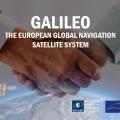The launch of Galileo Initial Services last year has paved the way for new services and applications that can foster the adoption of Galileo in markets outside Europe. Participants at the Munich Satellite Navigation Conference on March 6 discussed support available to European GNSS companies to develop these markets.

Speaking at the Summit, Pieter de Smet, a policy The benefits of multi-constellation are driving the adoption of Galileo outside Europeofficer with the European Commission’s Directorate-General for Growth, Internal market, Industry, Entrepreneurship and SMEs (DG GROW), outlined some of the ways in which the European Commission, in strong cooperation with the European GNSS Agency (GSA), is supporting Galileo uptake outside of Europe.
These include multilateral cooperation, through various organisations such as the International Maritime Organisation (IMO), the International Civil Aviation Organisation (ICAO), COSPAS SARSAT and others. Bilateral cooperation also plays an important role and there are a number of GNSS cooperation agreements and memoranda of understanding in place with countries such as the US, Korea and Ukraine. De Smet also noted the importance of R&D projects under Horizon 2020 and the European GNSS programmes.
Getting a foothold in Asia
One project – BELS - was highlighted in particular by Prof Ta Hai Tung, Director of the NAVIS Centre in Vietnam. The goal of BELS - Building European Links towards Southeast Asia - and its successor BELS+, is to help EU GNSS applications gain a foothold in South East Asia and to develop GNSS markets for EU companies.
The project has had a significant impact. Mark Dumville, Director of the UK-based Nottingham Scientific Limited said that BELS and GNSS Asia were excellent help in getting into the Asian market. “We received even more support than we asked for and achieved levels of dialogue with industry and government that would not have been possible through any other mechanisms,” he said.
Read this: BELS Builds Bridges to Southeast Asia
And in the US
Michael Ritter, President of the US company Hexagon Positioning Intelligence, said that his company had been using Galileo as standard in all of its products since 2010. Ritter said that, in precision agriculture, Galileo offers increased position availability with more signals, which translates into “more up time for growers using Galileo.”
He also said that Galileo offers increased reliability and integrity. “Agriculture has relied on GPS and GLONASS, but if one constellation has an error, which one is correct?” he asked, adding that multiple constellations supports better integrity monitoring.
Highlighting what may be one of the main drivers of Galileo adoption outside of Europe, Ritter noted that nobody can afford not to use multi-constellation. “From ATMs to driverless cars – it is just not safe to use one constellation,” he said.
GNSS Asia
Last year we ran a series of articles to highlight the important work being done across the Asian region to support European businesses in developing GNSS market opportunities in India, China, Taiwan, Korea, Japan and South East Asia. You can read the articles here:
Media note: This feature can be republished without charge provided the European GNSS Agency (GSA) is acknowledged as the source at the top or the bottom of the story. You must request permission before you use any of the photographs on the site. If you republish, we would be grateful if you could link back to the GSA website (http://www.gsa.europa.eu).